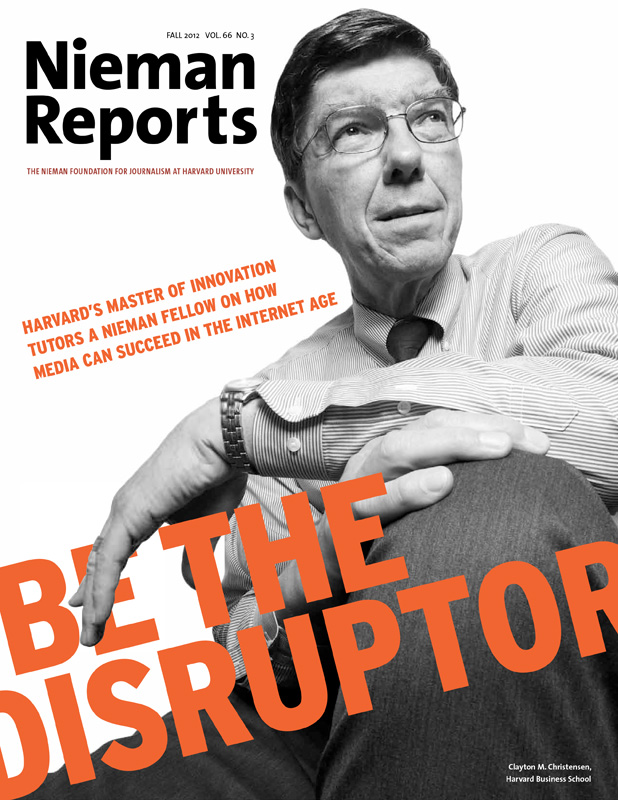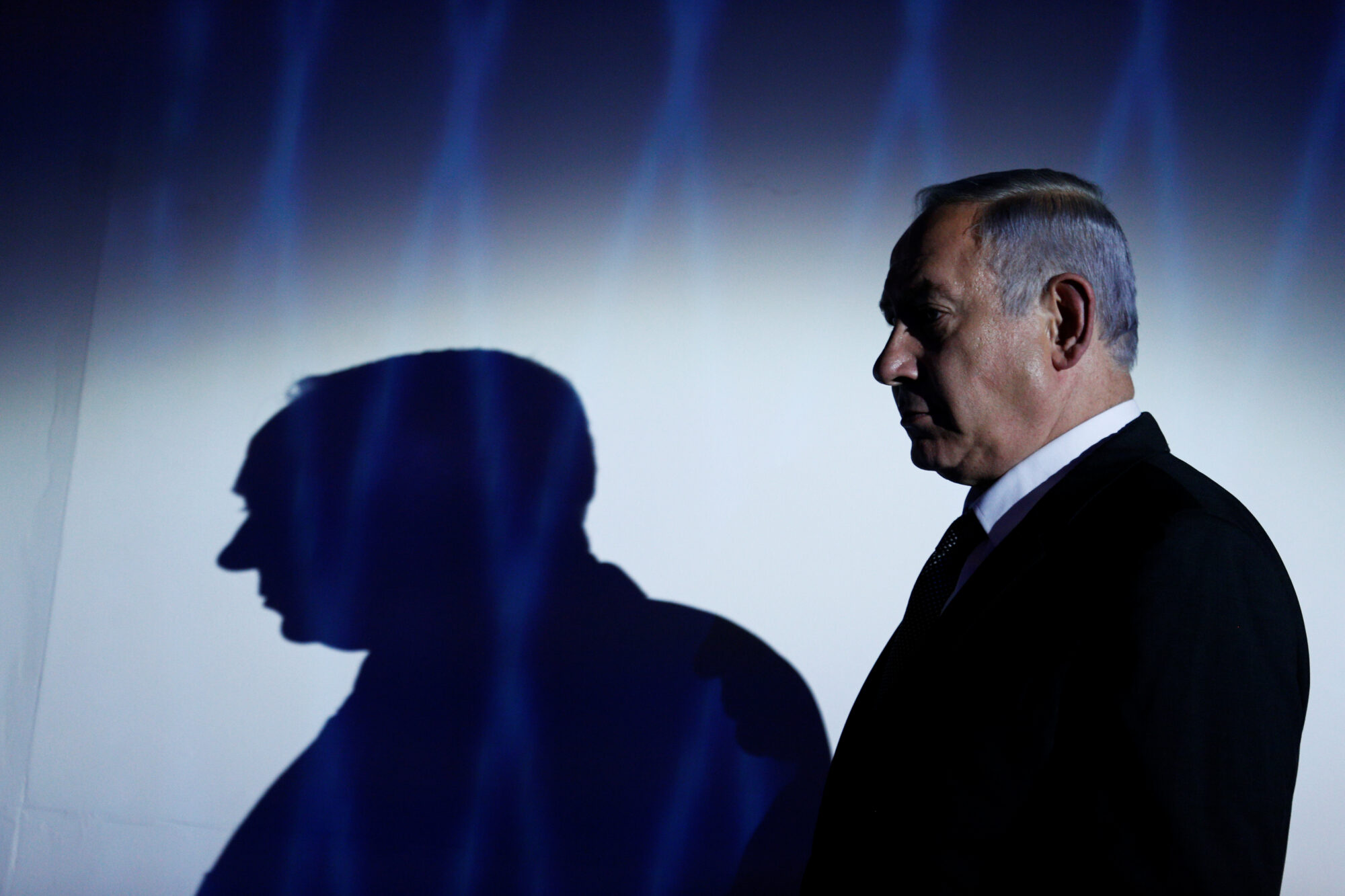
Photographers covering John F. Kennedy’s 1960 presidential campaign. Photo by Paul Schutzer/Time & Life Pictures/Getty Images.
"What goes on up there on the platform isn't really what's happening."
So said the late Newsweek reporter John J. Lindsay, quoted 40 years ago in Timothy Crouse's "The Boys on the Bus," which tracked a boozy, foul-mouthed, sleep-deprived group of reporters on the campaign trail in 1972. Four decades later, Lindsay's observation still nags at reporters: For all of the time on the trail, for all of the speeches and rallies and gaffes and photo ops, there is that sinking—no, infuriating—feeling that we don't really know the candidate.
We know a version of the candidate. One that's pieced together from stump speeches, press releases, tweets, slick websites, brief visits to the back ofthe campaign plane, the same milquetoast joke told again and again, hands grasped and babies kissed onthe rope line, and the rare exclusive interview. Reporters construct the candidate we know not just from his political record but in details like the pulled pork he had for lunch, his decision not to wear a tie, his workout regimen, or the number of gray hairs on his head.
Identities are meticulously shaped by campaigns. That's long been the case. But the distance between reporter and candidate—and in turn between candidate and the public—is yawning. At worst, reporters write based on what's given to them, much of which has been exactingly calculated by campaigns. (Worse still: When news organizations give campaigns quote approval.)
Long gone are the days of casual conversation between reporters and presidential hopefuls. (Harry Truman even played poker with reporters—and won—on the trail.) Of all of the superlatives the press repeats every four years—that this year's is the most toxic campaign, that campaign reporting has never been so frivolous, that this election is the most important in a generation—the recurring complaint about access, that it has never been more elusive, may actually hold weight.
Hopping The Train
Before the boys were on the bus, they were on trains. (And this was before RELATED ARTICLE
“On The Outside Looking In”
- Jonathan Seitzmany, if any, women were part of campaign coverage.) That's where newspaperman Jules Witcover got his start. Already considered one of the heavies in political reporting in 1972 when he was with the Los Angeles Times, Witcover had covered his first presidential campaign more than a decade and a half before that. He was in his 20s, working for the "large but cheap" chain of Newhouse Newspapers, and his boss let him hop on the Eisenhower campaign train from Washington to Philadelphia.
In those days, reporters—maybe in the dozens—traipsed behind the candidate. (This year, about 15,000 credentials went out to news organizations for each of the conventions, according to the convention organizers.) It was an era when Western Union workers would walk through the train cars calling for copy—"just like a copy boy would in a newsroom," Witcover remembers—then hop off at the next stop to transmit stories.
"It was a thrill to me because I was on the train with some of the then-famous White House reporters like Merriman Smith," said Witcover, now 85. "I was just one of the young kids on that train and I kept my ears open and my eyes open."
Four years later, Witcover returned to the campaign trail. He went on to cover every presidential campaign through 2004. (He made a couple of campaign stops in 2008, and still writes a syndicated column three times a week.) But Witcover has been complaining for decades about shrinking access to candidates.
"There's been a huge difference in the access to presidential candidates and to what they will tell you," Witcover said. "Politicians have become almost reclusive. They're out in public but they're not accessible. Reporters can't get to them and that hurts both ways. It hurts the ability of the press to get the story but it really hurts the politicians because they lose an opportunity to let people know who they are. Look at Mitt Romney—nominated, and the question is still, 'Who is Mitt Romney? What's he like? What kind of guy is he?' Reporters who cover the campaign, they can't get next to him. They certainly don't ride in a car with him, and [candidates are] not in situations when they let their hair down and talk to reporters. They also built up a whole army of protectors, handlers for candidates, not just strategists but just bodies who are there to get in your way, lower blinds, separate you from candidates. There's a much greater barrier now to getting close to the candidates and developing a relationship with them so they will trust you enough to tell you things you are trying to find out."
An Illusory Presence
Candidates may appear to be everywhere—they give speeches in towns across the country, they're active on Twitter and Facebook, they're e-mailing supporters for donations multiple times a week—but in ways that are often one-sided. Campaigns are able to get out messages while skirting the press.
President Barack Obama's first news conference of the year didn't happen until March. He didn't hold another one until June 29. After that, he waited until late August to subject himself to press questions. Romney's campaign has routinely tried to keep the press at bay, including trying to ban reporters from covering events and reprimanding them for calling out questions.
(Nieman Reports, hoping to spend a few days on the bus for this story, requested credentials from the Romney and Obama campaigns. Both campaigns turned us down. Romney's campaign said seats were only for "those that are reporting on Governor Romney," and Obama's team said that only members of the White House Correspondents' Association were eligible for credentials.)
Back in 1966, one of Witcover's attempts to get face time with political newsmakers was through the creation of the facetiously named Political Writers for a Democratic Society, an elite group of reporters who would regularly get together for drinks and dinner (then more drinks) with the people they covered. Witcover says President George H.W. Bush showed up to one such gathering while he was in office.
"The access we got—you could cash in by having someone come to one of these dinners, you knew who he was and what made him tick—but the road is blocked now," Witcover said. "And that's the problem. It's blocked in both directions. It's blocked for the reporter and it's blocked for the politician who's trying to get himself known in the way he wants to be known to reporters."
These days, a presidential candidate is overly protected "by either his handlers or his own attitude," Witcover says. He sees two big reasons that access contracted in the late 1960s and into the 1970s: "[President Lyndon B.] Johnson's lies of Vietnam and [President Richard] Nixon's lies about Watergate" and the increasingly adversarial press-politician relationship that resulted. But it also may have been that how reporters covered politics changed dramatically in the mid-20th century. After the success of Theodore H. White's book, "The Making of the President, 1960," newsrooms became more interested in conveying the human drama of a campaign.
The paradox: The more reporters have tried to get at who the person running for office is, the harder it has become.
The Clinton Drama
One of the cub reporters on the trail in 1972 was Curtis Wilkie, now 72, who says he was so young and unknown in those days that he "didn't have a whole lot of telephone calls returned." He was covering the George McGovern campaign for The News Journal in Wilmington, Delaware and would go on to cover eight straight presidential campaigns, seven of them for The Boston Globe. Wilkie didn't care much about breaking campaign news. He preferred reporting and writing the kinds of stories that got at the heart of who a candidate was.
The story he's most proud of in all those years was published in The Boston Globe Magazine in July 1992. "33 Days That Defined a Candidate"—based on observations from the campaign trail and his conversations with Bill and Hillary Clinton—is about the month leading up to the New Hampshire primary.
Here's how Wilkie set the scene: "… the campaign had acquired the characteristics of a carnival, a frantic crusade, a portable Chautauqua. In little more than a month, it had taken Clinton on a journey from the cover of Time magazine to the tawdry scandal sheets sold at supermarket checkout stands, keelhauled him through a controversy that renewed the pain of Vietnam, and plunged him into a free fall in popularity."
Dogged by claims of infidelity and in the face of a draft-dodging scandal, Clinton relied on what Wilkie calls his "tenacity, his relentless optimism, and his inner reserves" to beat the odds and survive a month that could have killed his presidential aspirations. Remembering that campaign now still astonishes Wilkie. "Just the crazy drama that was Clinton in 1992," Wilkie recalled. "He should never have gotten out of New Hampshire. He was so damn resilient. Climbing out of one scandal and into another."
Clinton was easy to talk to but Wilkie, whose words still drip with the slow warmth of a Mississippi drawl, was uniquely positioned to take his measure. Not only are both men Southerners but Wilkie was a reporter and editor for The Clarksdale (Miss.) Press Register for nearly seven years at the height of the civil rights movement. Racial segregation in the Arkansas of Clinton's youth was one of the subjects the two covered as they rode in a car during the campaign and spent time together one on one. Wilkie's proud of the profile he wrote for The Boston Globe Magazine the summer before the election.
"It wasn't news but I think you would come away with a pretty damn good idea of who he was," Wilkie said. "Covering politics—politics are very human. It's a very human exercise. It's not something that's cold and analytical. It involves human beings and how they react under pressure. How quick they think on their feet. How quickly they can recover from a blunder. Those were the stories that I always enjoyed doing."
Observing a candidate from the trail is better than nothing, and there is much to be learned about a candidate from how a campaign is run. But quoting a stump speech isn't ultimately much different from quoting a press release. As long as real access is restricted, there will be a gap between candidate and human being.
"Writing about the character of candidates," Wilkie said, "I think that's terribly important. People don't give a shit about issues, basically. How many people you think are going to read a 2,000-word take on the health care program? Not many. I don't mean to belittle it. Its good that we do it, and people do do it. Every paper tries to cover issues. But it's a lot more fun covering people."
Wilkie says he remembers sitting on a campaign plane more than a decade ago, having a drink and talking baseball with Robert Novak, the columnist who died in 2009.
"We looked around, and virtually everyone else on the plane had earphones on and was transcribing the same speech they had transcribed 12 times before," Wilkie said. "Novak says, 'Look at this. We are surrounded by a bunch of goddamn CPAs.' "
Adrienne LaFrance is a reporter for Digital First's Project Thunderdome in New York City. She previously was a staff writer for the Nieman Journalism Lab and a reporter in the Washington bureau of Honolulu Civil Beat.



